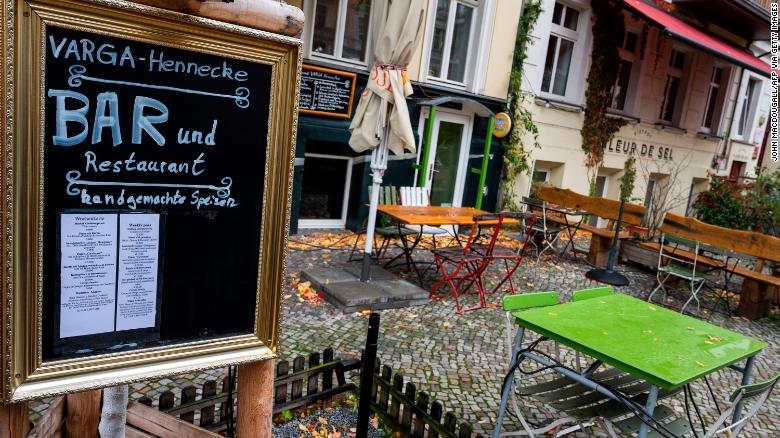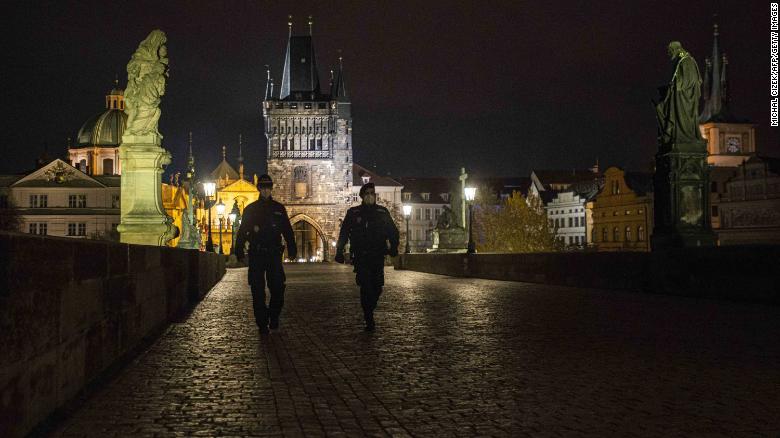Hospitals In Europe Under Pressure After Germany Record 19,059 COVID-19 Cases In 24-hour

Germany reported a record number of coronavirus cases for a fourth day in a row on Saturday with 19,059 new infections in 24 hours, according to the country’s disease control agency, the Robert Koch Institute (RKI).
The number of new infections broke Friday’s record of 18,681 cases. Germany’s total case count now stands at 518,753 and the death toll rose by 103 to 10,452, according to RKI.
Germany will impose wide-ranging lockdown measures from Monday in an attempt to slow down the spread of the coronavirus, its government decided on Wednesday night. Bars, restaurants and cafes will remain shut except for takeout. Theaters and concert halls will be closed, as will amateur and recreational sports facilities.

Belgium, which is to send patients to Germany for treatment as hospital admissions soar, will impose sweeping new lockdown measures for six weeks starting Sunday night.
Belgium has the second highest number of infections per 100,000 people in the European Union and UK, after the Czech Republic.
“We are going back into a strict lockdown, which has only one purpose: to ensure that our healthcare system does not collapse,” said Belgian Prime Minister Alexander De Croo as he announced the restrictions on Friday.
The measures include the closure of non-essential stores, hair salons and restaurants; mandatory mask-wearing for outdoor gatherings of up to four people and a ban on mixing indoors except with a “cuddle contact,” or person in a support bubble. The rules will be place until December 13. Schools will remain on vacation until November 15.
“We have to limit our physical contacts as much as possible,” said De Croo, adding that this was Belgium’s “last chance if we want to bring this curve down.”
France entered a second national lockdown on Friday that will last an initial four weeks, until December 1 at “minimum.” The rules will be more relaxed than during spring’s lockdown, with school and workplaces remaining open.
However, people will only be allowed outside “to work, to go to a medical appointment, to care for a relative, to shop for essential goods and to get some air,” said French President Emmanuel Macron.
“The virus is circulating at a speed that even the most pessimistic had not predicted,” Macron added.
A curfew that had been imposed in Paris and other cities had no impact on the spread of the virus, according to Macron.

Parks, gardens, and open-air markets will stay open but movement between regions will be forbidden.
Macron acknowledged the “huge effort” required by businesses forced to close, and said that “15 days from now, we will re-evaluate the situation” and “reopen some if the situation allows.”
Greece has also expanded its containment measures from high-risk areas to the whole country. In a televised address on Saturday, Prime Minister Kyriakos Mitsotakis outlined a series of measures for the whole country that will take effect on Tuesday November 3 and last for a month.
There will be a night-time curfew from midnight to 5 a.m., mask use will be mandatory everywhere, and more people will be encouraged to work from home.
The number of coronavirus cases in Europe since the beginning of the pandemic has exceeded the 10 million mark, with more than 1.5 million cases confirmed last week, World Health Organization’s Europe director Hans Kluge on Thursday.
During a meeting with European Health Ministers, Kluge said hospitalizations had risen to “levels unseen since the spring,” with deaths rising by 32% across the region last week.
“Europe is at the epicenter of this pandemic once again,” Kluge said.
“At the risk of sounding alarmist, I must express our very real concern and convey our steadfast commitment to stand beside you and support you as best we can.”
Kluge said lockdowns “need not mean what they meant in March or April” and that indirect economic impacts must be considered.
But for much of Europe, this new phase of lockdown looks set to be even harder than what came before.





